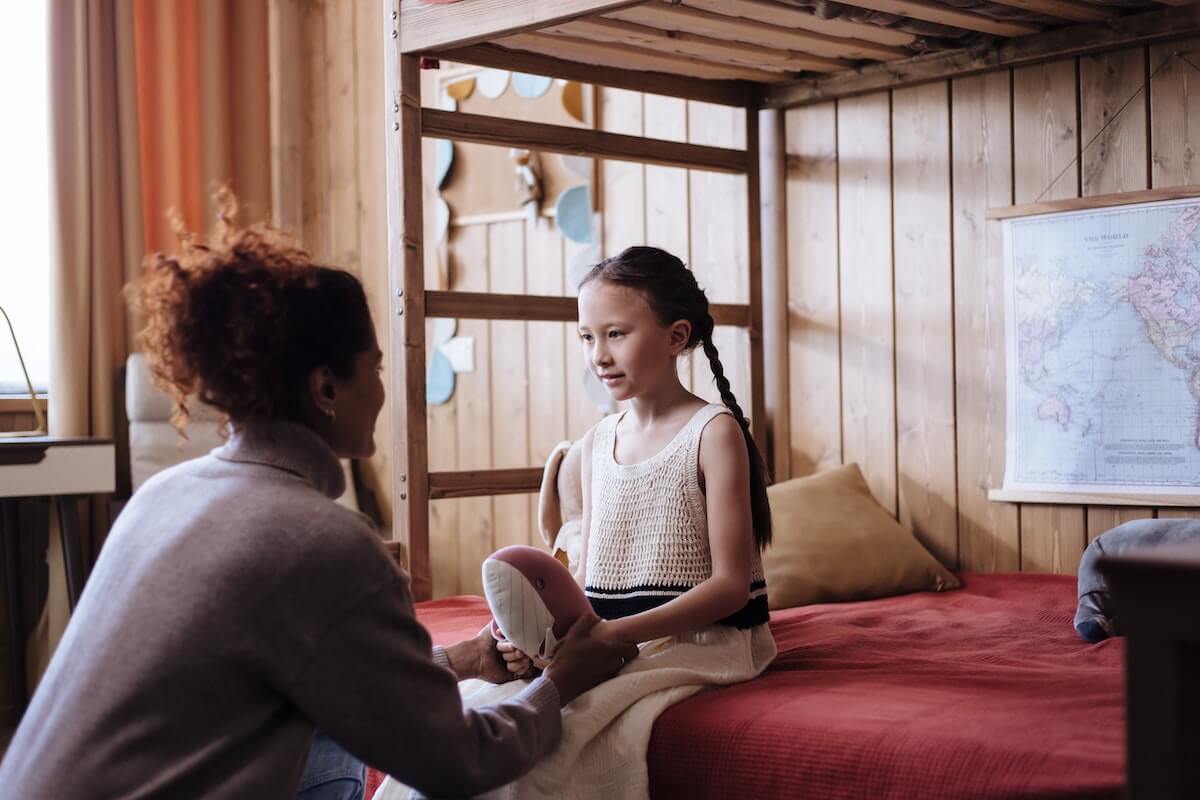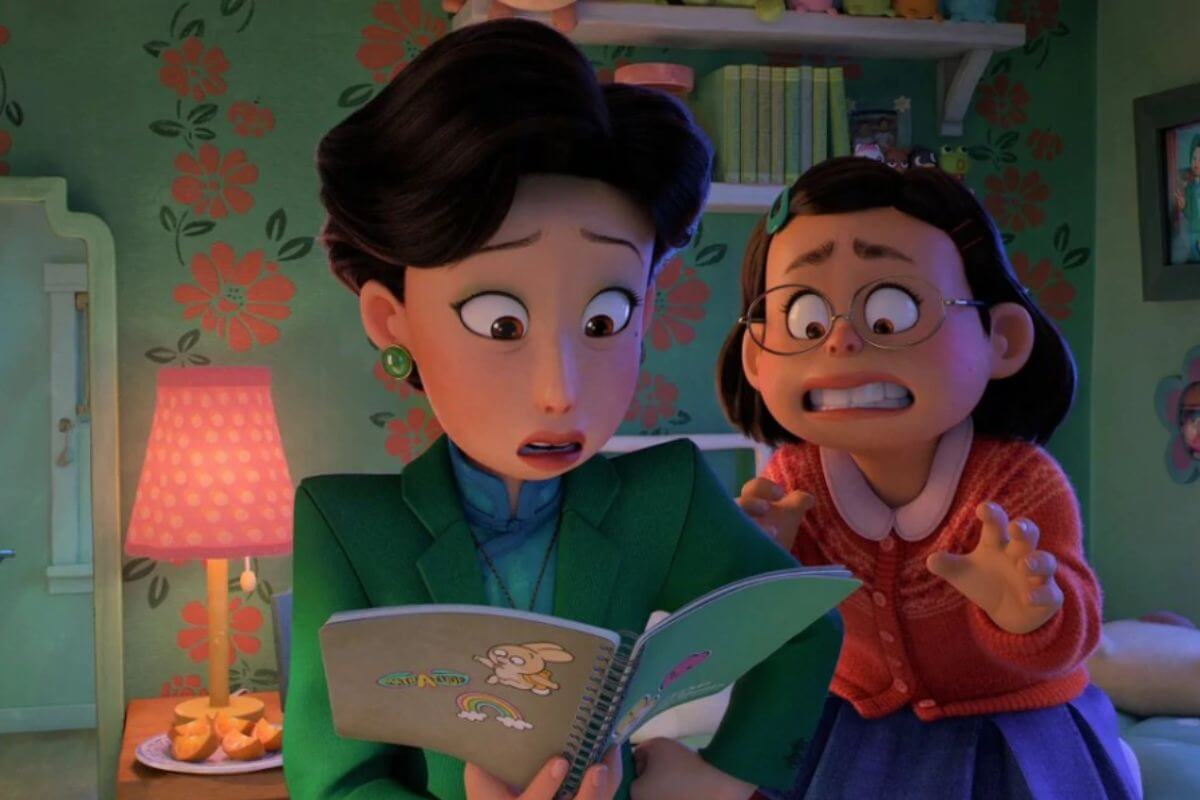North American culture is a funny thing. On the one hand, every aspect of popular culture, from TV shows to movies to magazines are saturated in either sexual innuendo or sex itself. On the other hand, we don’t actually like to talk about sex. And not just about sex itself, but also about body parts (“lady bits” anyone?), consent or past sexual partners. This extends into multiple facets of life, including a reluctance for parents to talk to kids about sex and puberty.
It makes sense! These types of conversations bring together multiple elements that many of us find difficult to talk about. Not only do you have to be vulnerable and talk about a potentially emotional topic, but you also expose yourself to the possibility of either not being understood or creating tension and awkwardness.
That avoidance has gotten so strong in many cases that some people are starting to complain about children’s movies that talk about puberty, which is a naturally occurring process for humans. Since Turning Red came out in early March, the internet has had a lot of opinions. In the film, a 13-year-old girl named Meilin turns into a big red panda whenever she gets excited. Many of the negative reviews frame the movie as bad for children. One Rotten Tomato reviewer, Scott M., had this to say about the movie: “Made me uncomfortable from the very start. I just don’t understand the desire to speed children through childhood. Everything is so sexually charged these days. Not a great movie.”

Adults Still Reluctant to Talk to Kids About Sex and Puberty
The thing is that the main character in Turning Red is 13. This is an age that we all have to go through to reach adulthood, and one filled with some of the most awkward, confusing and downright difficult moments we’ll ever have. To deny that it’s a part of life does no one any favors and only perpetuates a stigma of talking and learning about sex. Many adults would rather remain unhappy with their sex lives than actually discuss sexual intimacy with their partners. This means that parents don’t talk to kids about sex, either.
Experts agree that talking about sex and the human body from a young age is key, both to normalizing these types of conversations and making it easier for parents to keep bringing it up. It also ensures that children have the information that they need when they need it, and that it’s accurate. Social media and peers may often share information that isn’t correct or factual and if lines of communication with parents haven’t been opened and maintained, it’s less likely that misinformation will be corrected.
Early Conversations About Sex and Puberty Are Critical

Related Articles
By putting aside discomfort and taking the time to talk to kids about sex and puberty, children will have accurate knowledge about their bodies, and then turn into adults who have the confidence to approach and discuss their sexual wants or issues. Being unwilling to discuss or acknowledge sex puts children at a disadvantage as they age and find they don’t have the tools to navigate sexual relationships. Many people internalize the embarrassment their parents had when they were kids and end up having to re-educate themselves about sex as adults.
Although the release of Turning Red has been the latest vehicle for parents’ annoyance with being confronted with subjects they feel are too awkward to discuss with their children, it’s not the first. Since as early as 2007, parents have been shocked by seeing vibrators for sale outside of sex stores. That shock still hasn’t worn off, as evidenced by parents and concerned community members within the last four months.
It’s Time to Talk About Sex

While many reviewers and parents rage against Turning Red’s content, one of the things they don’t seem to clue in on is how scared Meilin is the first time she turns into a red panda. She’s so terrified that both her room and the bathroom are destroyed, but her fear still isn’t strong enough to overcome her embarrassment when her mother asks her what’s wrong. And then rather than calmly discussing the situation with her daughter, Ming hides behind a tree at Meilin’s school, puts her in an empty room she can’t destroy, and tells her she has no other option but to seal away her red panda in a talisman during a red moon ceremony.
All these reactions center around embarrassment, namely the embarrassment parents feel when they have to talk to kids about sex and puberty, which may itself be a direct result of how their parents talked about (or didn’t talk about) those subjects. Rather than facing that embarrassment, acknowledging it for what it is, and still choosing to go through with those conversations because they’re important, some parents go the same route as Meilin’s mother in Turning Red: pretending it won’t happen, putting off the conversation until they’re “prepared”, and then being horrified when they find out they’ve waited too long and puberty has continued to do what it’s always done. We can’t stop it, it’s dangerous to ignore it, so it’s high time we learned how to talk to kids about sex.
Lead image credit: Still image from the movie Turning Red, courtesy of DisneyPixar.







